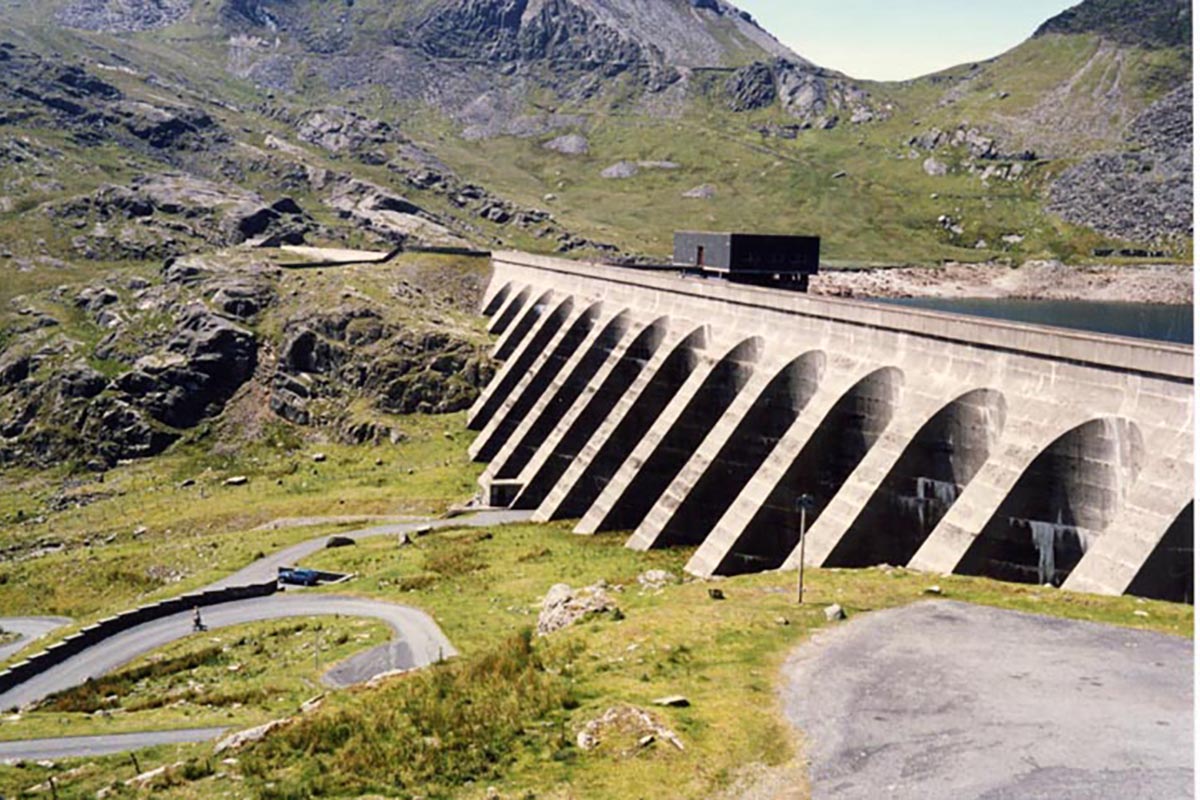From our collaborating partner Living on Earth, public radio’s environmental news magazine, an interview by Aynsley O’Neill with Pat Parenteau, a former EPA regional counsel and emeritus professor at Vermont Law and Graduate School.
In 2021, Honolulu, Hawai’i, brought a lawsuit against a group of fossil fuel companies over the climate and environmental impacts of burning oil and gas. The case potentially makes the companies liable for over a billion dollars worth of damages.
Nearly 40 similar cases are now working their way through state courts across the country. Fossil fuel industry defendants appealed to the U.S. Supreme Court to block the Honolulu case from forcing the companies to turn over records and go through a trial.
But the justices declined the industry’s requests and are allowing the cases to move forward in the lower courts for now.
The court’s restraint is a big deal for climate litigation, says Pat Parenteau, former EPA regional counsel and emeritus professor at Vermont Law and Graduate School. And he considers the high court’s willingness to let states and localities seek climate redress in the courts a bright spot as we head into the start of a second Trump administration, which is forecast to favor federal climate inaction.
This interview has been edited for length and clarity.
We’re hiring!
Please take a look at the new openings in our newsroom.
See jobs
PAT PARENTEAU: This lawsuit filed by the city of Honolulu against major oil companies—Exxon, Sunoco and others—is seeking to recover the costs from climate damage that states like Hawaii and cities like Honolulu are incurring: storms and droughts and heat and so forth, and the money is to be used for adaptation. It’s not one of the typical climate cases where you’re trying to reduce emissions. It’s a case where [the plaintiff is] saying the emissions are continuing and they’re doing a lot of damage, and the companies that are responsible for marketing and selling the products that are causing climate change need to bear some of the costs. Not all of the costs, but some of the costs of dealing with the impacts from climate change.
AYNSLEY O’NEILL: There’s about 40 similar cases around the country. How does this case differ from, say, the case in Massachusetts alleging that Exxon misled consumers and investors about climate risks?
PARENTEAU: There are some similarities. That particular point of deception is present in the Honolulu case as well, but Honolulu is arguing a lot of other theories, including things like public nuisance and strict liability, whereas the Massachusetts case is really focused on that consumer protection aspect and on false advertising. What Massachusetts is seeking is penalties and, of course, an acknowledgement from the company that they haven’t been entirely forthcoming and honest about the way they’ve marketed their products, and also something called disgorgement of profits—“ill-gotten gains,” as we call it in the law. So they’re similar in some ways, but also very different in terms of the amount of money that’s being sought.
O’NEILL: What are the fossil fuel companies’ responses to these allegations and claims?

PARENTEAU: The oil companies are saying a number of things. First of all, they’re saying the only remedy for climate change is really through the legislative process. That’s one of their main arguments, that the courts shouldn’t be involved in adjudicating controversies over a global problem where pretty much everybody’s responsible. That’s another one of their arguments, and where the solutions are really difficult and complicated, because we can’t stop burning fossil fuels overnight, and it’s going to take a long time to transition away to other sources of energy, and it’s going to take money and investments and policies. And these cases, they argue, don’t accomplish any of that.
[The companies argue states are] trying to punish the oil companies. They’re trying to single out individual companies for a problem that everybody is responsible for, globally, and that the states shouldn’t be bringing these lawsuits because these are trans-boundary pollution issues. They don’t involve any one state. They don’t even involve any one country. Which is all true, but what they’re not willing to accept is that they do bear some responsibility for marketing products and, of course, reaping significant profits over time for a product it has turned out to be causing pollution that’s resulting in the kinds of horrendous scenes like what we’re seeing today in Los Angeles.
O’NEILL: What do you make of the Supreme Court’s decision to not take the case? Is it them saying it’s better left to the states, or is it kind of a stopgap until it gets brought back to the Supreme Court?
PARENTEAU: They didn’t say it’s better left to states. They didn’t say anything. When they deny review, they just issue an order and there’s no opinion. So the only thing you can say is that the Supreme Court didn’t think that now was the time for them to just step into the controversy.
It doesn’t mean that the controversy has gone away, and it doesn’t mean that the oil companies won’t be back someday, once again, petitioning the Supreme Court to hear their arguments. It just means that for now, importantly, these cases can go to trial, and that means that the states and cities can put on the kind of evidence to show what exactly the companies have done and what the consequences have been and the costs that have been incurred. States are going to have to prove all of this, of course. Nothing’s been proven yet, and no judgments have been issued yet.
So there’s a long way to go before we have an actual verdict and a figure that the companies are going to be forced to pay. It’s at that point where one of these cases—maybe Honolulu, maybe Massachusetts, maybe another one—will probably once again find its way back to the United States Supreme Court, because this ultimate question of whether federal law or state law governs these cases has to be answered by the Supreme Court, and it will take years before we get an answer to that.
O’NEILL: If a judge rules in favor of Honolulu, what kind of long-term implications would there be for the oil companies and the climate crisis overall?
PARENTEAU: One consequence [would be] a large verdict for over a billion dollars, which is what all of these cases are seeking. In California, the estimate is so far that fires in LA have done $150 billion worth of damage, so they wouldn’t be seeking the entire $150 billion. But collectively, with all of these different cases, we really are talking about billions, and we may be talking about the potential for bankruptcy in these cases.
That’s one thing that the oil companies are arguing, is what you’re going to ultimately do is drive us into bankruptcy. We don’t know that that’s true, but that’s certainly an argument that they’re making.
One of the major benefits of these cases would be to give the states and cities and counties another source of revenue to pay for what they’re going to need to develop to adapt to these extreme weather events, and that’s the ultimate goal of these cases, is to provide funding—not for everything that’s required, but some contribution from the oil companies towards those costs, which otherwise will fall on the general taxpayers.
O’NEILL: How big was this decision to not take the case?
PARENTEAU: Well, it was big, because if they had taken the case, at a minimum, it would have frozen all these cases in place for over a year, because it takes the Supreme Court a year from the time it agrees to review a case to [get through] all of the briefing that’s required. An oral argument wouldn’t occur until the fall of this year, and a decision … probably wouldn’t be issued until 2026. So for that period of time, nothing would happen in all these cases; they’d be frozen.
The other thing is, by taking the case, that would have been a signal that some, perhaps a majority, of the justices thought that the oil companies were right, that these cases shouldn’t proceed. And of course, that could have been a blow to these cases, it could have ended them all. If this court rules that these cases are preempted by federal law, they can’t proceed.
By saying they’re not hearing the case, they’ve allowed these cases to proceed to trial, where I think the states and counties and cities that are bringing these cases will be in a better position to argue to the Supreme Court down the road that these cases really are justified, once they’ve been able to prove all the damages, prove the deception, and make it more difficult for the court to say, no, the companies are completely immune from liability from these cases.
About This Story
Perhaps you noticed: This story, like all the news we publish, is free to read. That’s because Inside Climate News is a 501c3 nonprofit organization. We do not charge a subscription fee, lock our news behind a paywall, or clutter our website with ads. We make our news on climate and the environment freely available to you and anyone who wants it.
That’s not all. We also share our news for free with scores of other media organizations around the country. Many of them can’t afford to do environmental journalism of their own. We’ve built bureaus from coast to coast to report local stories, collaborate with local newsrooms and co-publish articles so that this vital work is shared as widely as possible.
Two of us launched ICN in 2007. Six years later we earned a Pulitzer Prize for National Reporting, and now we run the oldest and largest dedicated climate newsroom in the nation. We tell the story in all its complexity. We hold polluters accountable. We expose environmental injustice. We debunk misinformation. We scrutinize solutions and inspire action.
Donations from readers like you fund every aspect of what we do. If you don’t already, will you support our ongoing work, our reporting on the biggest crisis facing our planet, and help us reach even more readers in more places?
Please take a moment to make a tax-deductible donation. Every one of them makes a difference.
Thank you,
















